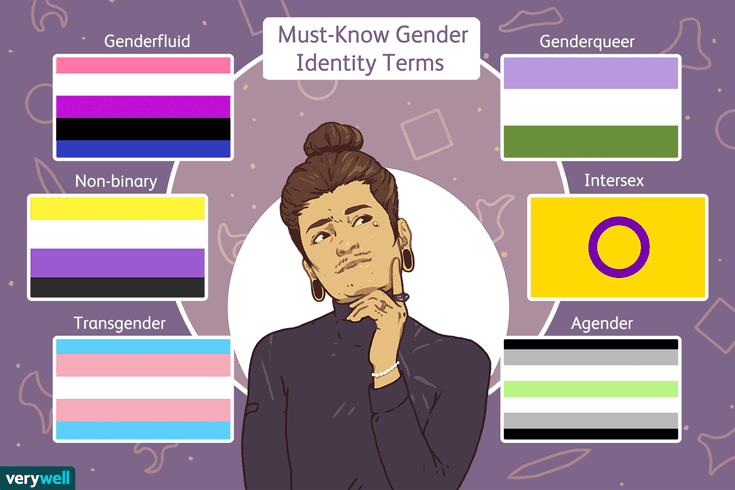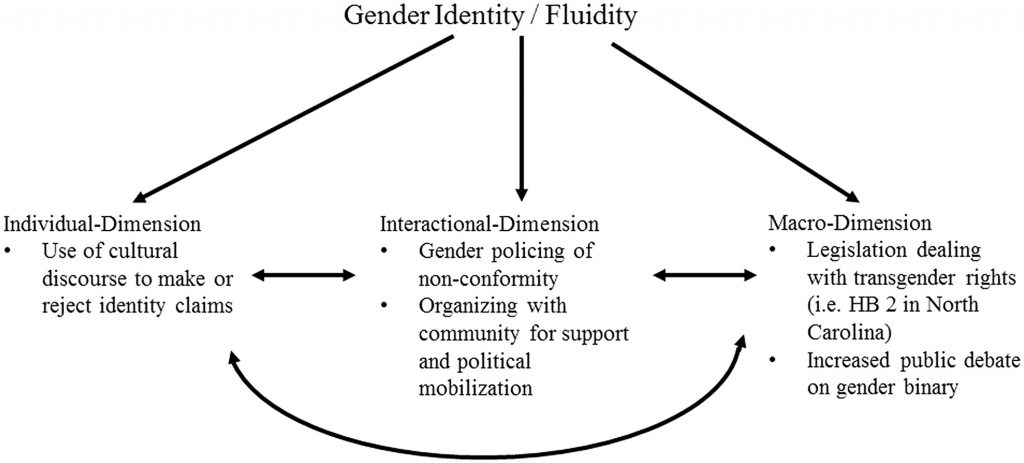Gender Identity, Dimensions of Gender and Socialization of Gender Roles
Introduction
There exists a general misconception amongst people on the relationship between sex and gender to the extent that the terms ‘sex’ and ‘gender’ being used interchangeably. This notion is not only misguided but also lacks a basis for support. The sex of a person does not dictate his gender, this is because the gender of a person is determined by identity and their social role.
The name gender stems from a Latin word ‘genus’ that is defined to mean kind or race, while the term ‘sex’ stems from a Latin word ‘sexus’ which is interpreted to be the external genital appearance of an individual. (Ward 11)
Dimensions of Gender
The sex of a person does not address their gender sufficiently, the gender of a person is determined by an intricate interrelationship of three dimensions. these dimensions include;
- Body: our physical body, personal experience of our own body and the interaction of society with our body.
- Identity: individual perception of our own bodies as being male, female, both male and female or neither.
- Expression: the interaction of the individual and how they portray themselves to the society, culture, and
Gender identity is understood to be the personal conception of oneself as being male, female or neither. An individual’s preferred gender identity can match the assigned sex at birth or can differ from it significantly like in the case of a transgender person.
The phrase ‘transgender’ is used to refer to a person’s identity that does not match the sex assigned at birth. There exists a general agreement in almost all societies with regards to the sex of a person as being either male or female. This division of sexes assigns very particular expectations members of both members of the masculine and feminine groups. (Miller 28)
Age of formation of gender identity
The gender identity of a person begins to form at the age of three. At this age children are deemed to have developed the much-needed self-awareness which is a major factor in determining their gender identity(Ward 14). Also, it is during this age that children are observed to be attracted to activities that society deems to be appropriate for a particular gender. These activities include dolls for girls and cars for boys. This happens despite the fact that children are oblivious to the implications that come with belonging to a particular gender.
Scientists are yet to unravel the specific determinants that dictate the gender identity of a person. However, there is a working theory that suggests genetics, hormones, reproductive organs, biological and environmental factors all play a role in determining the gender identity of a person.
Socialization of Gender Roles
Socialization of gender roles refers to the process of learning or acquiring behavior and attitudes considered to be acceptable by society depending on the sex of a person. Socialization is understood to be the process of transferring and acquiring norms, values, and beliefs to members of a particular group. In this case, socialization is to the extent of transferring and acquiring the different norms, values, beliefs, and practices to the members of different sexes. (Kramer et al 10)
These norms and values are learned through observing the activities of members of a particular sex and or by association. These norms have far-reaching effects on the perceptions and mindset of children as they are engaged in a rigorous conditioned behavior activity.
In many societies, the process of gender socialization and development begin from a child’s birth. Based on the sex at birth children begin to be preconditioned to act in a particular way. A good example of this is the room of a boy is painted with colors deemed to be favored by the male while the room of a girl is painted using colors deemed to be preferred by females.
Children learn through imitation and role-modeling. As such, Family is the primary agent of socialization of gender roles. The socialization is dictated by the expectations of the different cultures. Families introduce the different cultures to children based on their sex at birth, this is done although not intentionally. A boy will normally get car toys while a girl child will receive dolls. Further, as children grow parents assign them different tasks depending on their sex. Boys will be expected to do physically draining tasks while girls will be allocated light tasks.
The socialization of gender is deeply ingrained in our everyday life that it dictates almost every aspect of our lives. Even as adults the socialization of gender roles influence a large part of our lives including our career choices, preferred dressing, the cars we drive and our overall ambitions.
Problems Associated with Gender Identity crisis
Gender identity crisis occurs in instances where a person is assigned one gender at birth but identifies or prefers belonging to another gender, or in instances where they do not conform with societal expectations of their prescribed gender. (Miller 26)
This crisis may occur at any time of a person’s life. However, in most instances, it occurs during early childhood and teenage years. Children dealing with gender identity crisis are in the habit of engaging in tasks or activities that society deems to belong to members of the opposite gender. This crisis may also result to children cross-dressing, engaging in exclusive cross-gender play, awkwardness amongst members of the same sex. Further, some children may express hate towards the particular organ that dictates their gender to society. A boy will be disgusted by his penis and would wish not to have it, while girls will be disgusted by their breast or vagina.
Amongst adolescents and adults, the gender identification crisis will manifest through desires to be treated like members of the opposite sex, dressing like the opposite sex and a general attraction to members of the same sex.
Gender identity crisis or disorder if left unchecked can lead to serious psychological problems. These include low self-esteem, hate towards societal institutions that dictate the different gender roles, and depression. This diseases are caused by man’s desire to fit in and be accepted in the society. This situation is worsened if the family members of a child facing gender identity crisis reprimand them for their choice, terming it to be unnatural, disgusting and demeaning to the family’s name and reputation.
However, open reprimand does not resolve problems associated with gender identity disorders. Parents are advised to counsel their children appropriately, and let them know that whatever choice they make it will not change their love or commitment towards supporting them. Parents should take a further step of enrolling children dealing with gender identity crisis for counseling by a professional.
Educating Society on the Evils of Imposing Gender Roles and Expectations
Although unintentionally, parents and society as a whole continues to impose gender roles and expectations on children based on their sex at birth. This continues to happen despite women having defied the notion that they are the weaker sex, despite the fact that we are living in the information age where people are more open minded and at an age where all social stereotypes have been disregarded.
Parents will innocently caution their young girl from playing with the boys next door in outdoor activities, while boys will be cautioned from playing with dolls because they are perceived to be designed for girls.
The imposition of gender roles and expectations on children is a culture passed on from many generations. Like any other culture, uprooting the dictations of gender roles and expectations in society will take time. The first step would be to educate society on the difference between ‘sex’ and ‘gender’; that the sex of a person at birth does not dictate his or her gender. The second step will be to have a campaign aimed at eliminating all stereotypes associated with being transgender or desiring to be of a different gender. Currently, people facing gender identity crisis suffer a lot of stigma from opening up on their desired gender. Society needs to understand that there is nothing unnatural or disgusting for a man to wish to be seen as a member of the feminine gender.
Conclusion
The development of gender identity is one of the most important pillars of socialization. The current societal system imposes gender roles and expectations on children from birth. Children are not given their inherent right to choose which gender to belong to, which is a serious infringement of their rights.
Society needs to rethink the effect of gender imposed roles. A child needs to know that they can be whoever they want to be, free from the shackles that come with societal expectations. Achieving this level of societal consciousness and self-awareness will take time, but it needs to be done.








